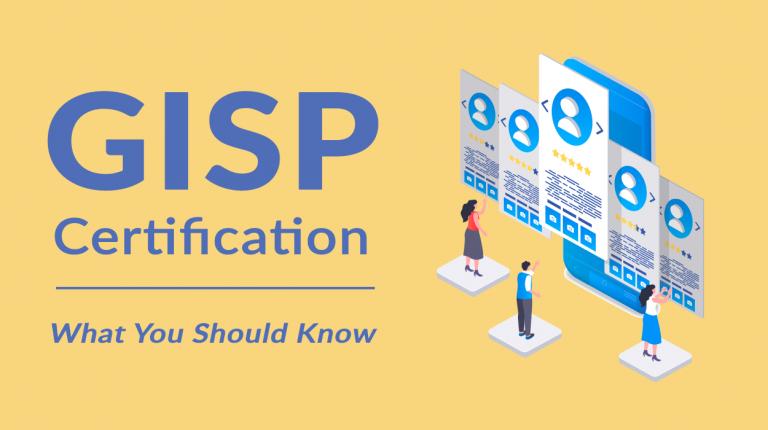
What kind of GIS certification is available?
The three primary GIS certification types are the GIS Professional (GISP), Esri Technical certifications, and online GIS certification.
But is it worth your time, effort, and money to be GIS-certified?
Well, you’ve come to the right place because we show you step-by-step the programs available for GIS certification.
And best of all: Is it worth it to enroll in a GIS certificate program? Let’s dive right in.
Types of GIS certificates
The three primary GIS certifications that employers seek and the major differences are:
| Certification Type | Requirements |
|---|---|
| Online GIS Certification | Learn from university and industry leaders while building proficiency working with Esri ArcGIS Software. |
| Geographic Information Systems Professional (GISP) | Must pass an exam and fulfill requirements for work and volunteer experience. |
| Esri Technical Certification | Knowledge and test-based with Esri-related technology and products. |
Now, let’s look at the three types of GIS certifications in a bit more detail.
1. Online GIS Certification
An online GIS certification is a valuable asset for those looking to climb the professional ladder and start working in the geospatial industry. And with the added benefits of avoiding the cost of a traditional GIS degree, online GIS education is a win-win for employers and employees. Some of its major benefits include:
- Start instantly and learn at your own schedule.
- Earn a professional certification upon completion.
- Set and maintain flexible deadlines with courses 100% online.

If you want to enroll in a professional certificate program, we recommend the Professional Certificate in Geographic Information Systems (GIS) Essentials from the University of Alaska.
Throughout the certificate program, you will build proficiency using Esri ArcGIS software in both 2D and 3D. You’ll problem-solve with spatial analysis and then communicate your results with a story map.
Finally, you will learn unique skills for landscape analysis including watershed delineation and image classification to showcase to employers.
2. GISP Certification
If you want a career in GIS, GISP is probably the most recognized types of GIS certification. According to the GIS Certification Institute (GISCI), there are 10,500 individuals certified with a GISP designation throughout the world. Although the number may vary at this time, GISCI previously listed 5,500 individuals as active members.
The GISP application manual highlights all the requirements for attaining this GIS certification. For example, you need to meet the experience, education, and contribution requirements to be GISP certified.
- EXPERIENCE: You need at least 4 years of full-time experience in the field of GIS.
- EDUCATION: Before you send your application, you need to meet the education requirements.
- CONTRIBUTIONS: It also looks at how many contributions you have made to the GIS community. For example, this could be anything from presentations, journal articles and volunteering.
- EXAMINATION: Lastly, you have to pass the GISCI Geospatial Core Technical Knowledge Exam.
You will also have to provide a fee and proof that you fulfilled these criteria. If you fulfill the requirements listed, you will become fully certified as a GISP. Once you earn your GISP, it’s valid for a three-year period. This means that you need to re-certify after this period is over.
3. Esri Technical Certification
The Esri Technical Certificate is a relatively new program. Unlike GISP which focuses on experience and involvement, the Esri Technical Certification is completely knowledge-focused and exam-based.
There are three domains where you can attain GIS certification:
- DESKTOP EXAM: The Desktop exam tests basic ArcGIS concepts such as visualizing, managing and analyzing geospatial data.
- DEVELOPER EXAM: The Developer exam evaluates engine application development for ArcGIS and building desktop or web GIS applications.
- ENTERPRISE EXAM: Lastly, the Enterprise exams evaluate enterprise geodatabase management, system design and administration.
Also, the two levels of certification are Associate and Professional. If you are interested in the Esri Technical Certificate programs, be sure to look at the beta exams to help prepare.
If you don’t want to commit to this certification, there is also Esri’s free training and MOOC to boost your skillset.
Is it worth it to be GIS certified?
I guess this is the big question, isn’t it? Is it worth the time, money, and effort to be online, GISP, or Esri certified? Put a different way, can the cost of getting educated to a professional level on the GIS market be worth the knowledge?
It really depends.
Nowadays, it’s rare to see any type of GIS certification as a requirement in a job description. For the surveyor profession, it is often essential to certify yourself and is a job requirement. But in the case of GIS, many employers are less familiar with the GISP and Esri Technical certificates. If the company uses another GIS software, that means your time, money, and effort for Esri certification was wasted.
But there’s a lot to get out of GIS certifications though. For example:
- It can help you differentiate yourself when applying for a crowded GIS position. Not to mention, the extra credentials may push you one spot ahead of other candidates.
- GIS certification helps you become an expert in your field and gives you confidence.
- Lastly, you get the necessary experience and knowledge to climb the GIS career ladder in your job.
Overall, GIS certification is a major opportunity for job seekers who want to advance their careers as geospatial professionals. Once completed, you can showcase these skills to future employers. So overall, it depends on how much you think the GIS certification will benefit you and what you want to get out of it.
Are there any alternatives to GIS certification?
If you’re looking to really complement your GIS skillset, then the emerging field of data science has some major benefits.
For example, data science has seen +650% job growth since 2012 (source: LinkedIn). Additionally, the average annual average salary has hit $120,931 for jobs with the title of “data scientist” (source: Glassdoor)
Here are some data science certificate courses that you may be interested in:
The outlook for data scientists is estimated to grow by 11.5 million new jobs related to data science by 2026 (source: U.S. Bureau of Labor Statistics).
Otherwise, are you thinking about getting a GIS certificate or an alternative type of GIS certification? Please give us your thoughts in the comment section below.





